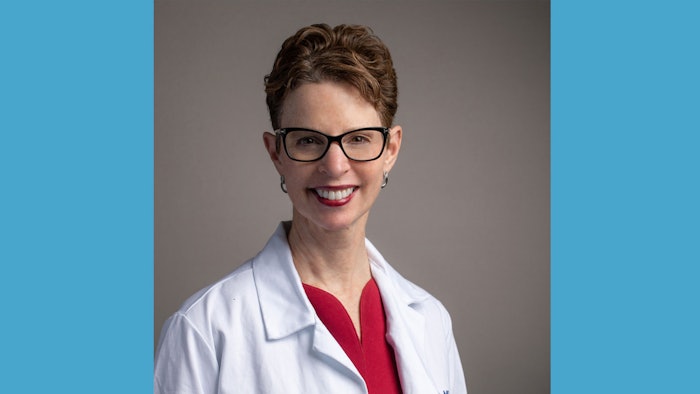The transformative essence of obstetric anesthesiology
Spotlighting the power of purpose-driven careers.

Lisa Leffert, MD, has devoted her long career to the anesthesiology needs of obstetric patients with neurological conditions and vulnerabilities. It’s a journey that has fostered research in a niche field that doesn’t get nearly the attention it deserves, according to Dr. Leffert. She will deliver Saturday’s “Gertie Marx Plenary Lecture: The OB Anesthesiologist and Transformation.”
The session is a nod to the legendary work of Gertie Marx, MD, the obstetric anesthesiologist considered the “mother of obstetric anesthesia” for pioneering the use of epidural analgesia during childbirth and as the founding editor of Obstetric Anesthesia Digest. It’s also Dr. Leffert’s opportunity to highlight Dr. Marx’s career path, and what it teaches us about how careers are made.
“She was incredible. I don't think anyone has any idea,” Dr. Leffert said of Dr. Marx. “She tackled practically everything in our field such a long time ago and made so many important advances.”
Dr. Leffert will present a compelling discussion of the transformative power of purpose-driven careers and the evolving role of anesthesiologists in women’s health. Her session will serve as a platform to analyze the broad impact of the obstetric anesthesiologist in contemporary practice in the United States and highlight challenges and opportunities that are of paramount importance in the field.
Obstetric anesthesiology is still a relatively new subspecialty, she said, with limited fellowship opportunities and a supply-demand mismatch in trained professionals.
Additionally, maternal health is increasingly complex due to older maternal age, chronic conditions such as diabetes and hypertension, and comorbidities.
“All of that makes an understanding of the unique physiology of pregnancy even more critical in anesthesiology care,” Dr. Leffert said.
In addition to detailing her own career, which has spanned decades and includes leadership, hiring, and mentoring hundreds of anesthesiologists, Dr. Leffert will highlight a call to action on two pressing issues in obstetric anesthesia: pain during cesarean delivery and spinal headaches from epidural procedures.
In addressing pain during cesarean delivery, Dr. Leffert said that despite regional anesthesia, some women experience significant pain during cesarean deliveries. The issue is a focus of scientific literature and, more recently, mainstream media, including in the recent “The Retrievals” podcast series.
Although spinal headaches from epidural procedures affect roughly 1% of patients, she said there is research suggesting these headaches can be associated with long-term consequences. Dr. Leffert believes this under-researched issue is ripe for deeper investigation and innovation.
“We’re just beginning to think about the implications of these two critical challenges,” she said. “What progress have we or have we not made in these areas?”
Obstetric anesthesiology remains a field with unanswered questions, Dr. Leffert said, even though childbirth is as old as the dawn of time.
“Childbirth is unique to a subset of people, physiology, and specific period in a person’s life,” she said. “So, having health care providers and anesthesiologists who are focused on this time period is extremely important.”
Consider, too, she said, that the need for experienced anesthesiologists is a global one, particularly in under-resourced areas. Experienced obstetric anesthesiologists are often clustered in certain places, such as big cities, while morbidity and mortality are high in many other regions.
“In general, pregnant women are younger and healthier than most hospitalized patients. But circumstances such as hemorrhagic shock, severe preeclampsia, and malplacentation can put these patients at an even higher risk during or after delivery,” Dr. Leffert said. “Whether this occurs in big cities, rural areas, or in other parts of the world, we need experienced anesthesiologists ready to step in.”
Additionally, Dr. Leffert reminds colleagues that the job of an obstetric anesthesiologist is to care for two patients: mother and baby.
"What’s good for the mother is generally good for the baby,” she said. “We must know if the drugs we give to the mother will cross the placenta or if the mother’s condition changes, will a preterm birth be indicated? It is a complex ecosystem, and we must consider all these aspects.”
Dr. Leffert said obstetric anesthesiology is a vital, evolving field that demands attention, investment, and innovation. Her session promises to inspire both seasoned professionals and newcomers to consider how their careers can drive meaningful change.
